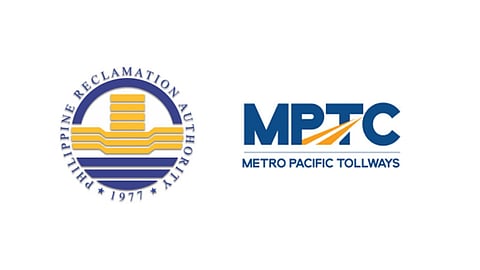
- NEWS
- the EDIT
- COMMENTARY
- BUSINESS
- LIFE
- SHOW
- ACTION
- GLOBAL GOALS
- SNAPS
- DYARYO TIRADA
- MORE

The Philippine Reclamation Authority (PRA) on Monday reiterated its strong opposition to the Metro Pacific Tollways Corporation's (MPTC) offer to "buy out" the government share of P2.5 billion in running the Manila-Cavite Expressway (Cavitex).
In a statement, PRA emphasized its "unwavering commitment to national interests and legal integrity", and dismissed claims regarding lack of response to offers, challenges to revenue-sharing agreements, alleged project expenditures, and authority to file legal actions, affirming its adherence to due process and dedication to the welfare of the Filipino people.
Outstanding offer by MPTC for P2.5 Billion buy-out
Consistent findings across five reports issued by the Commission on Audit (COA), the PRA said, have substantiated the presence of irregularities concerning the operational processes and revenue collection activities attributed to Cavitex Infrastructure Corp. (CIC), an MPTC subsidiary.
"These irregularities encompass various aspects in terms of revenue collection practices, indicating a pattern of non-compliance or misconduct warranting further investigation and potential remedial action in accordance with applicable laws and regulations governing public sector financial management," Atty. Ariel Inton, Philippine Estate Authority Tollway Corporation (PEATC) spokesperson told DAILY TRIBUNE.
"It is pertinent to highlight that subsequent to the expiration of the Operating and Maintenance Agreement (OMA) and under the previous administration of the Philippine Reclamation Authority (PRA), propositions were presented for the acquisition of the entire project or the assumption of operations and maintenance (O&M) responsibilities," the PRA statement, on the other hand read.
However, Inton said, upon cursory examination, the offer appears to be "egregiously unfair, unreasonable, and morally objectionable."
"Emphasis should be placed on the potential legal ramifications of accepting such a one-sided proposal from CIC by the PRA Board of Directors, including potential charges of corruption, actions detrimental to the state's interests, and accusations of plunder," Inton said.
According to him, rejection of the offer underscores the PRA Board of Directors' recognition of its inherent inequity and unsuitability.
"Additionally, the proposed buyout would entail the dissolution of PEATC, a Government-Owned and Controlled Corporation (GOCC) entrusted with the operation, maintenance, and toll collection of the MCTEP," Inton further explained.
"Therefore, strict adherence to the requisite processes and regulations governing GOCC transactions becomes imperative," he added.
In the PRA statement, the agency said it is incumbent upon the PRA, in alignment with established legal precepts and procedural norms, to refrain from entertaining or endorsing propositions that may entail legal, financial, or ethical liabilities.
"Conversely, it is advisable for CIC to conduct a comprehensive review of pertinent statutory and regulatory frameworks, cognizant of the unique constraints and obligations inherent in transactions involving GOCC," the PRA said.
Alleged Absence of Formal Request from PRA to Shift Revenue Sharing
Inton said addressing the claim of a lack of formal requests from the PRA in previous instances regarding the adjustment of revenue sharing to a 60-40 ratio is crucial.
Since the assumption of leadership by Chairman Atty. Alexander T. Lopez and the subsequent establishment of the Board of Directors at the PRA, there have been numerous instances where the PRA Board has reiterated demands for the revision of the prevailing 90/10 revenue sharing arrangement to a proposed 60/40 distribution model.
This insistence stems from the assertion that the CIC cannot credibly assert an ongoing failure to recoup their initial capital investment in the project.
Such demands underscore a legal interpretation by the PRA Board regarding the adequacy of returns on investment and the necessity for equitable redistribution of revenues derived from the project, potentially invoking contractual clauses or regulatory provisions governing revenue-sharing agreements within the pertinent legal framework.
Inton said records showed that last Friday alone, the toll fees collected was pegged at over P8 million.
"And they have already earned over P22 billion in the past. Is this not the biggest tollway robbery in our history?" Inton said.
Therefore, the invocation of legal remedies such as the mandamus petition serves not only as a safeguard against potential misuse of public resources but also as a means to uphold the fundamental rights of the Filipino people to equitable governance and fiscal responsibility," PRA said in its statement.
"Muli't-muli po, tayo po ay mananatiling, para sa Diyos, at para sa Bayan, para sa isang Bagong Pilipinas sa gabay ng ating Mahal na Pangulong Ferdinand R. Marcos Jr.," it added.
